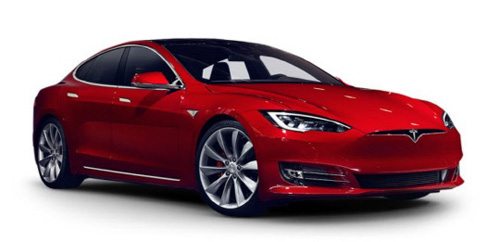Due to expensive price and charging… ‘TeslaㆍBYD ’ in difficulty in Korea
Choi Yong Soon | cys@ | 2017-09-26 09:53:11

Tesla electric vehicle 'Model S' provided by Tesla
Representative electric vehicle companies such as Tesla of the United States and BYD of China are not able to make a good impression in Korea. The two companies have received market attention in the form of formalizing their entry into the domestic market at the end of last year, but they have not been able to achieve such results in the past six months.
Tesla, which opened its domestic store in mid-March this year, is said to have sold more than 40 units, according to industry sources. Besides, BYD, which entered Korea through a supply contract with companies such as Ijewell Fair, seems to have fewer vehicles sold domestically except for a few demonstration cars.
Tesla Korea is not affiliated with the Imported Car Association, and it does not disclose data such as its sales volume on its own, making it difficult to understand the domestic business situation. However, according to the latest automobile sales research site Kaizu Data Research Institute, Tesla Model S and Model X registered in just 40 units between June and July. According to the Ministry of Land, Transport and Maritime Registered Numbers, it is estimated that there is no significant difference from the aggregate results of this site.
Meanwhile, despite the explosive interest in the market, Tesla`s sales were sluggish due to high vehicle prices of over W100mn, charging infrastructure problems, and demand for low-end models3. In addition, domestic auto makers seem to have played a role in launching electric cars that have greatly increased their mileage.
However, Tesla predicted that sales would increase as the electric vehicle regulations subject to government subsidies were revised. Tesla representative pointed out, "We are not able to figure out the number of units sold because we do not disclose the number of units sold and the number of units sold." Currently, only the model S 90D receives a subsidy, but other models will receive subsidies sequentially.?
BYD, China`s No. 1 electric vehicle maker, has yet to achieve visible results in Korea. The electric low-floor bus K9 and the minivan C6 have been domestically supplied, but there is no car currently running on domestic roads. The situation has improved with the revision of the subsidy payment regulations, but it seems that the high prices and the charging infrastructure have been obstacles. The price of K9, which is known to be about KRW 400 million, is lowered to KRW 200 million if it receives both subsidies and low-floor bus subsidies. However, domestic diesel and CNG city buses and low-floor buses are at a much lower price. If BYD does not secure price competitiveness, it will be hard to survive in Korea. Earlier, imported domestic car companies also promoted the introduction of BYD `E6` mini electric car for taxi, but withdrew the plan with the problem of certification and high price.
"The BYD car has not been rolled out yet, but the Miniv C6 is in Udo in November, and the K9 is also actively doing business," stated a representative from Ezwel. "We are negotiating the supply price to lower the price competitiveness."
By Choi Yong Soon cys@
